To create the Trail of Faith in Dubois County, Indiana, the group identified 19 churches that had stood on their original foundations for at least 100 years. These churches span various denominations and architectural styles. The trail includes the St. Joseph Catholic Church in Jasper, St. Ferdinand Catholic Church, the Monastery Immaculate Conception Church in Ferdinand, and 16 other churches. Each of these buildings has a unique historical significance, such as being the first church in the area or playing a key role in the community’s development. The founders worked with local tourism boards and historical societies to create a self-guided driving tour that allows visitors to experience these churches firsthand.
The Trail of Faith is an 85-mile journey through time. It showcases architectural styles ranging from simple log churches to grand, European-inspired structures. Each church provides a glimpse into a different era of American history and the evolving nature of religious expression in the Midwest.
Piper’s Pro Planning: If you want to see most of these churches, contact Visit Dubois County to have them send you a map before you arrive. The brochure provides an exterior photo of each church, a map marking its location, and a brief description of its historical significance. You can take the self-guided tour at your own pace, but create a plan to make the most of your time.
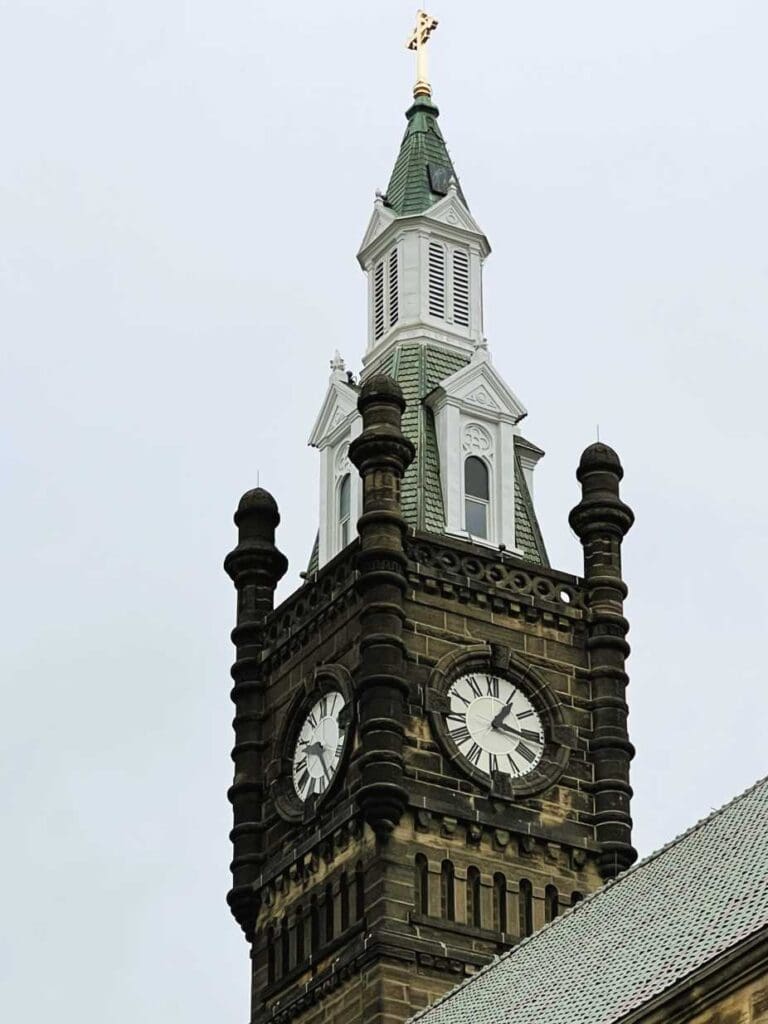
Table of Contents
St. Joseph Catholic Church
As I entered Jasper, the bell tower stood above the trees. I immediately understood there was something special about this church. But at that point, I didn’t know that it was a living museum with a story. It wasn’t until later that I learned about the 18 other churches that told stories about the people who settled in southern Indiana and their faith.
The Church’s History
One of the trail’s highlights is St. Joseph Catholic Church in Jasper, completed in 1880. Father Fidelis Maute designed this towering stone church. The church is a tribute to the dedication of the German Catholic immigrants who settled there. Its Romanesque Revival style, with round arches and a massive bell tower, evokes the grandeur of medieval European cathedrals. As I toured the inside, I was reminded of the Duomo from my recent trip to Milan.
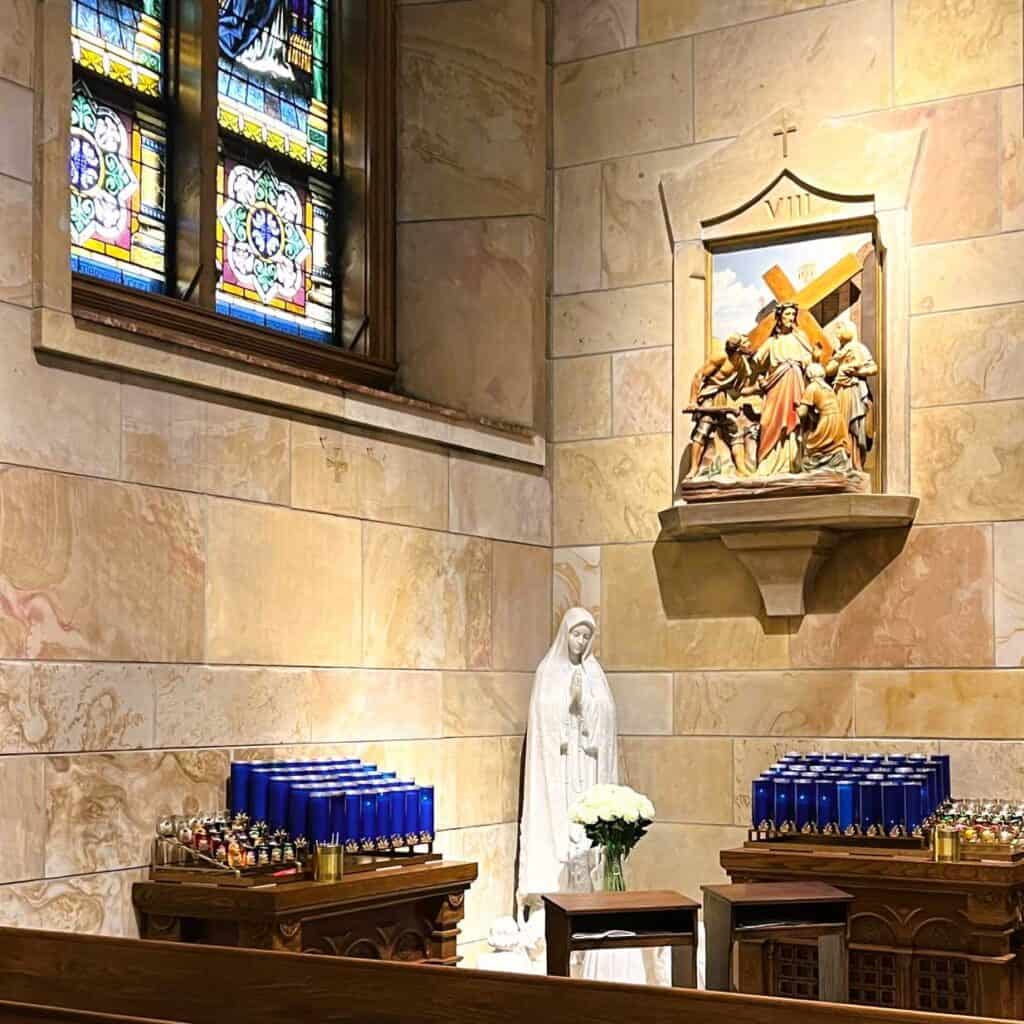
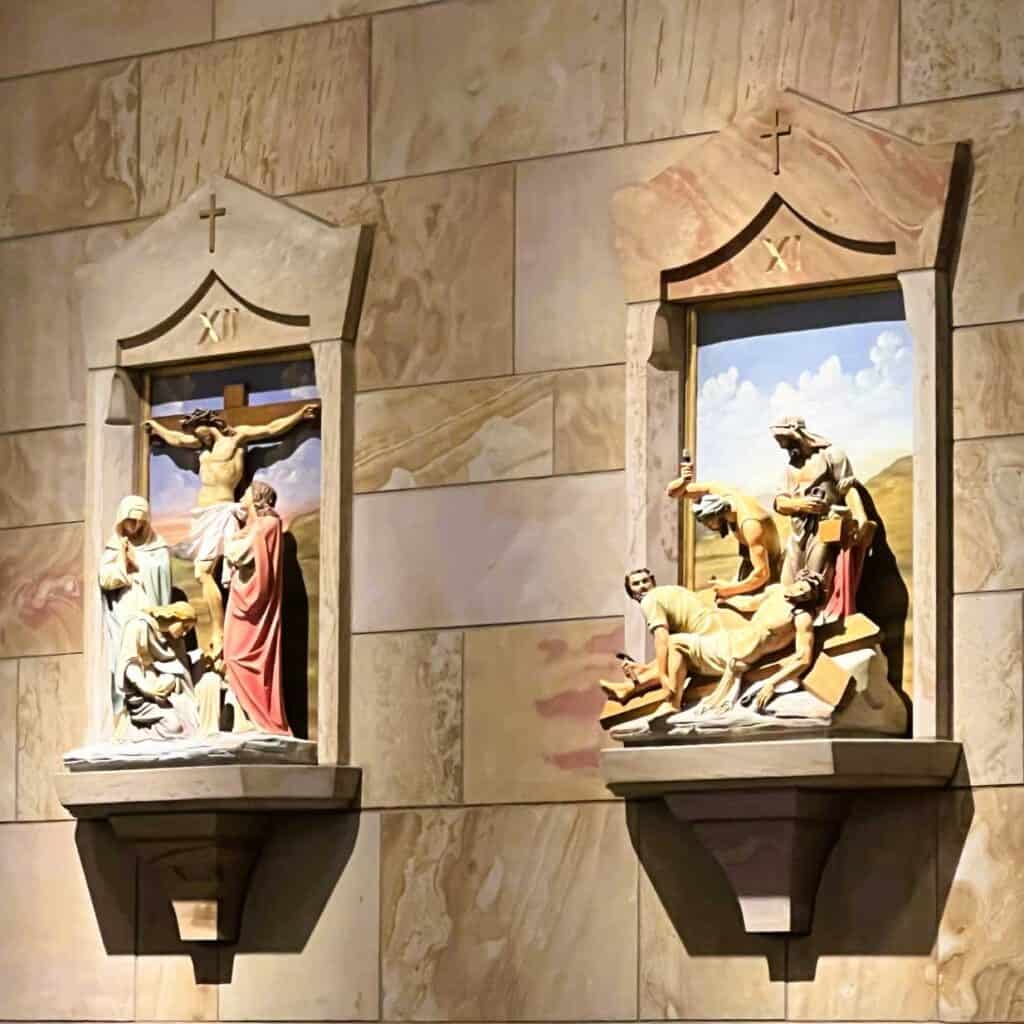
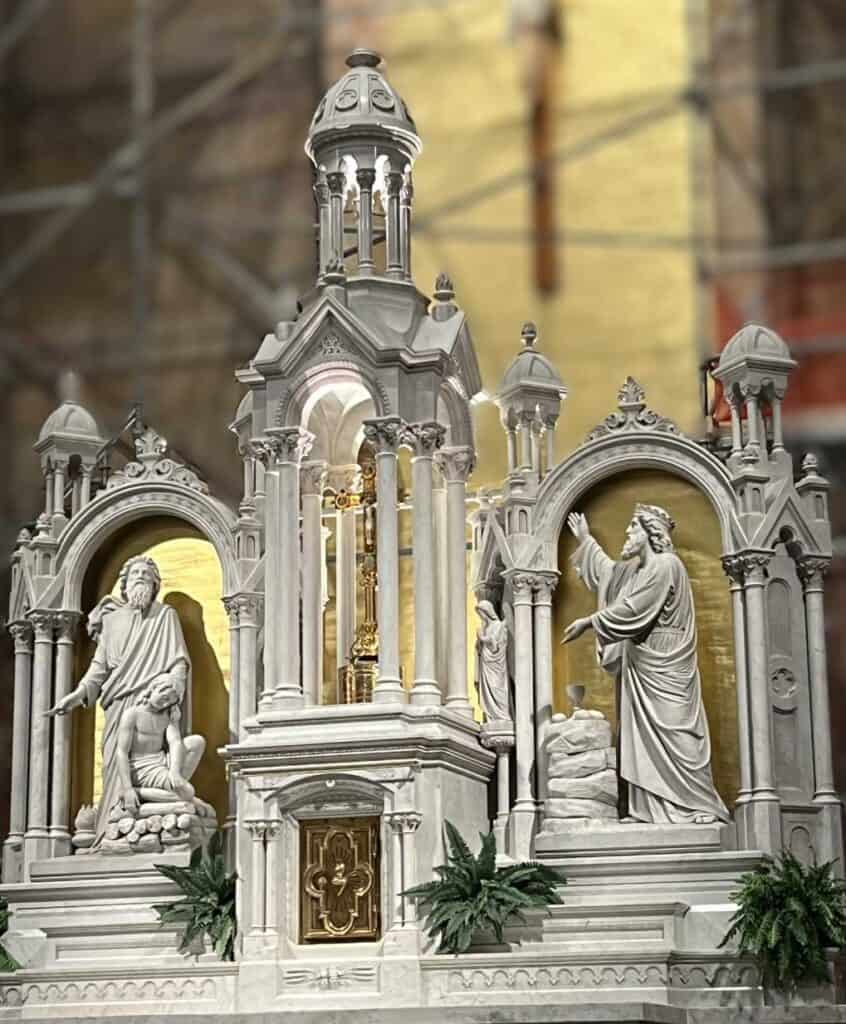
The Ambo
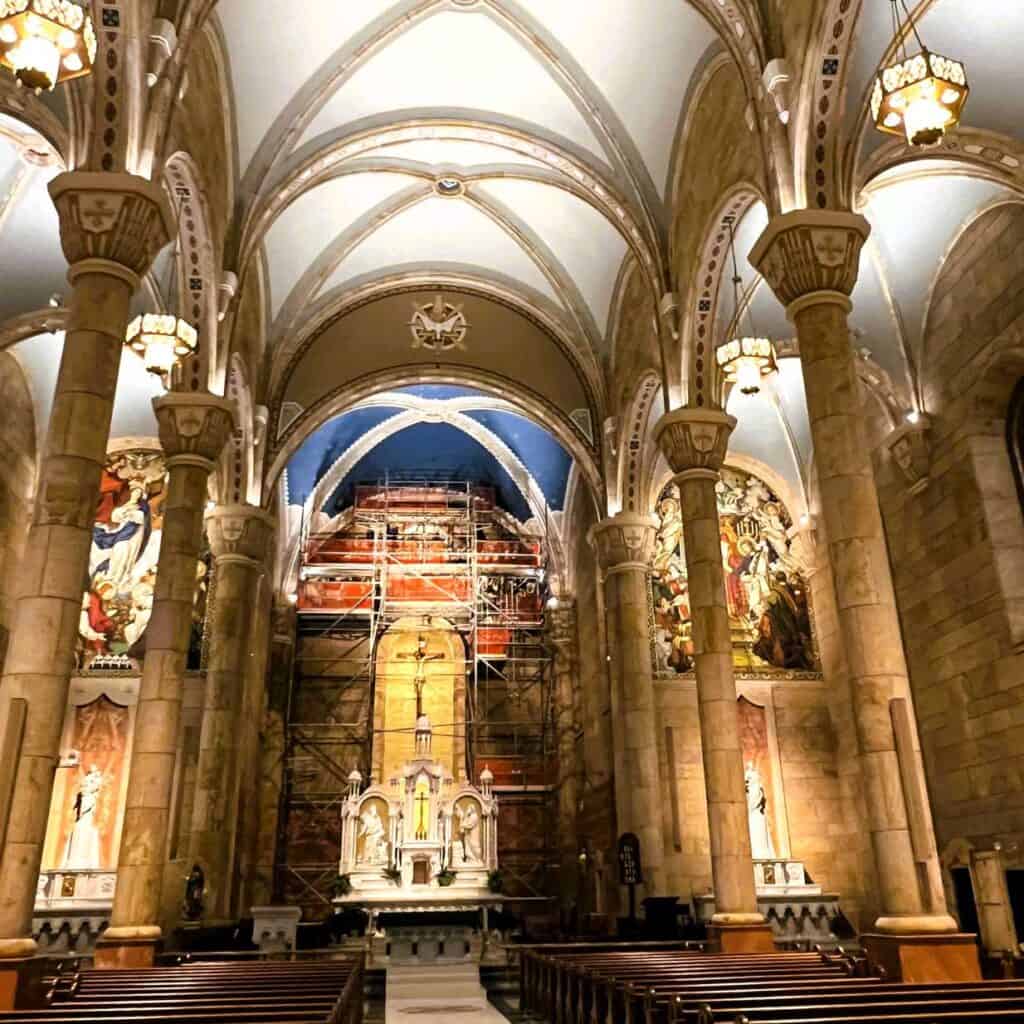
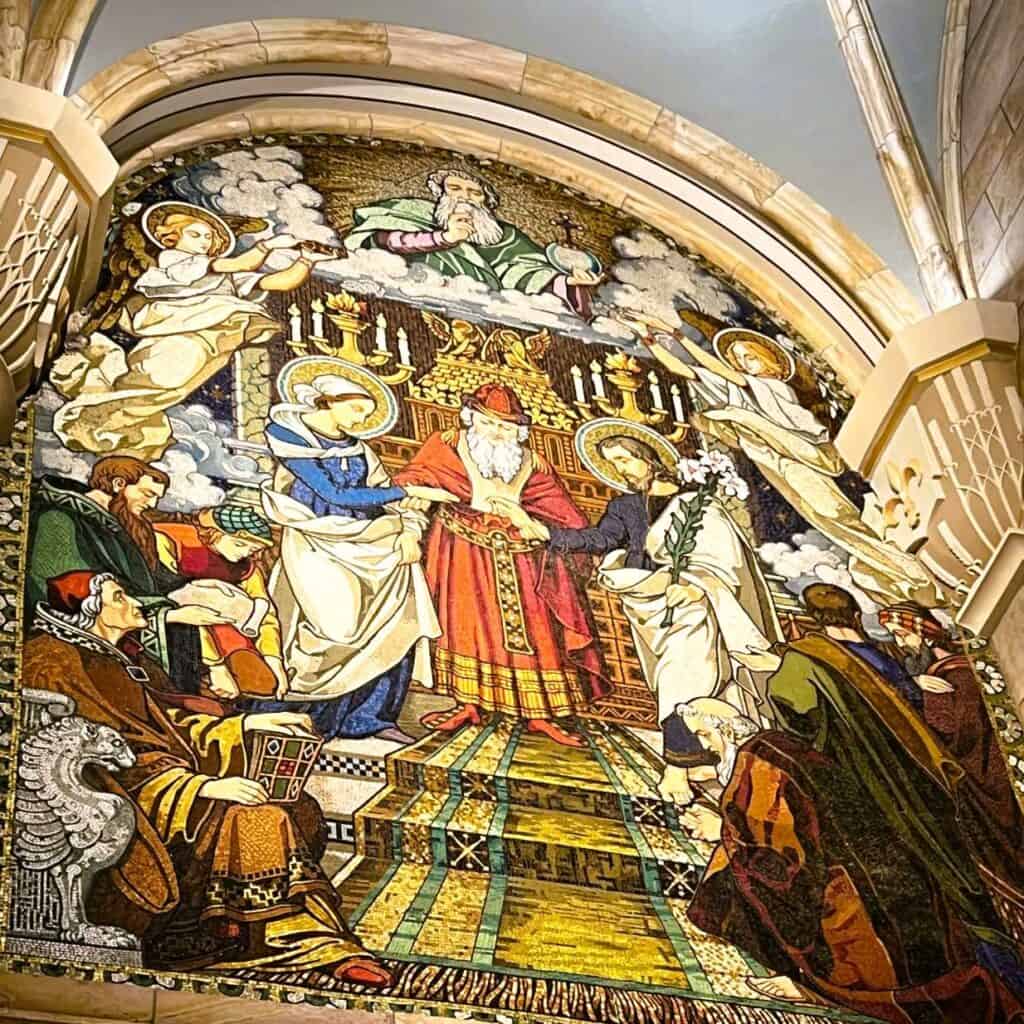
While the stained-glass windows and sculptures of the Stations of the Cross were stunning, what stood out to me were the mosaics at the front of the church. I’m always fascinated by how hundreds of tiny pieces become one unified picture. As you can see from the scaffolding in the picture, maintaining these art pieces is quite an undertaking.
In contrast, the trail includes more modest structures like the Ireland Methodist Church, built in 1878. A historical society maintains this simple wooden church, offering visitors a window into the frontier spirit of early settlers who built houses of worship with limited resources but complete faith.
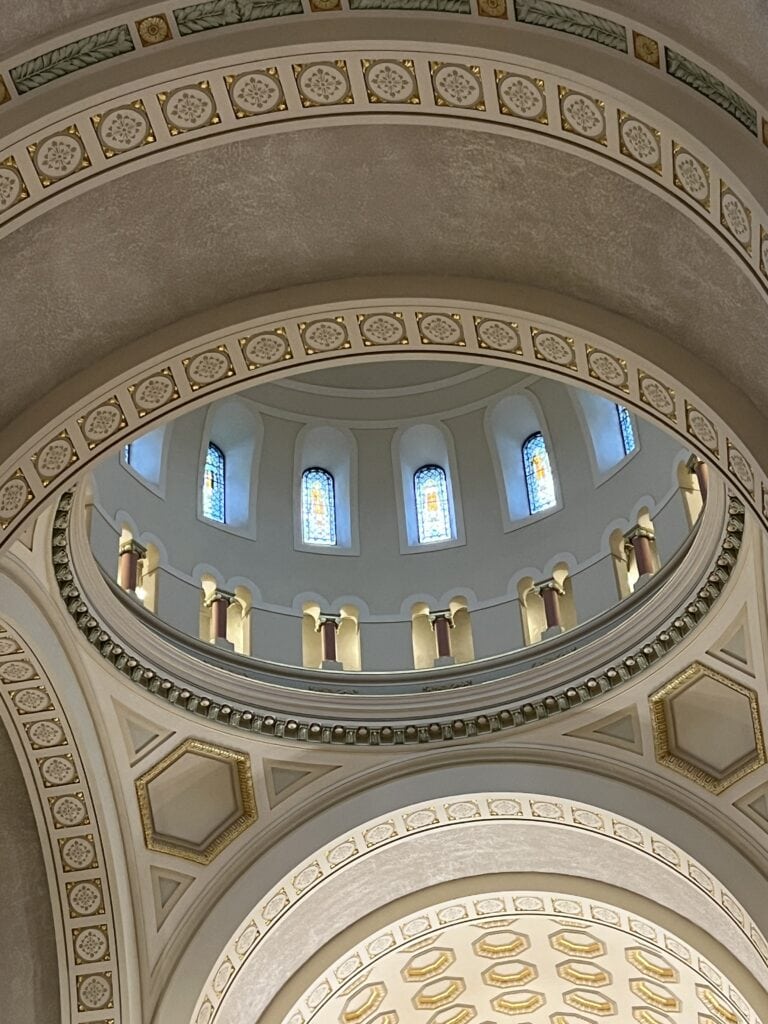
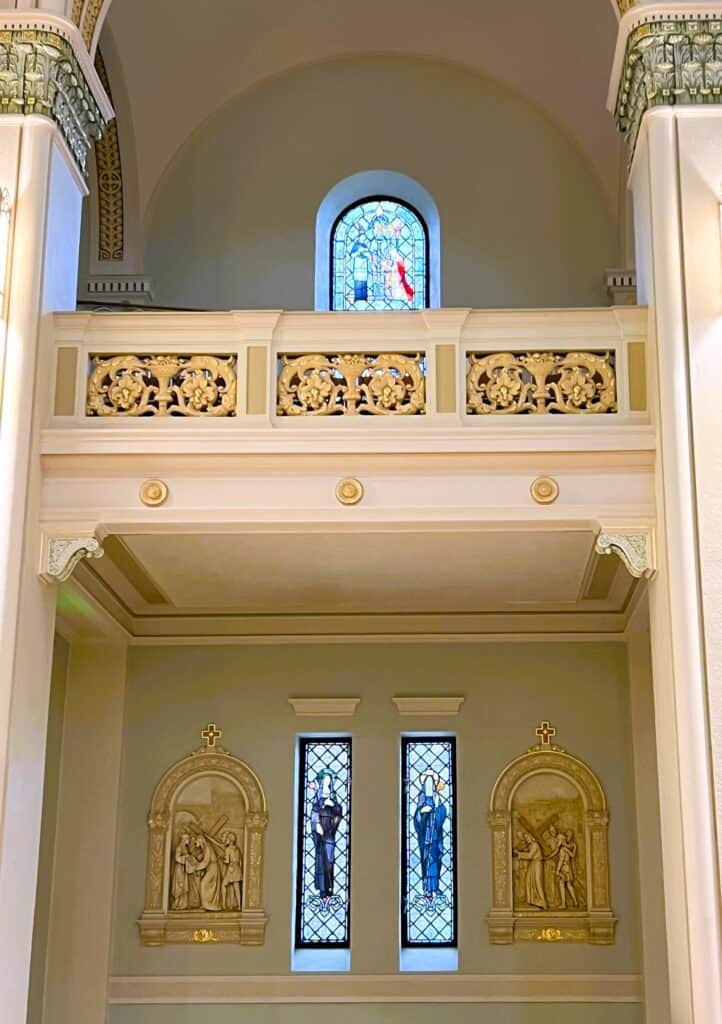
Monastery Immaculate Conception Church
The Monastery Immaculate Conception Church in Ferdinand is home to one of the largest communities of Benedictine Sisters in the United States. This striking structure, blending Romanesque and Gothic elements, is on the National Register of Historic Places.
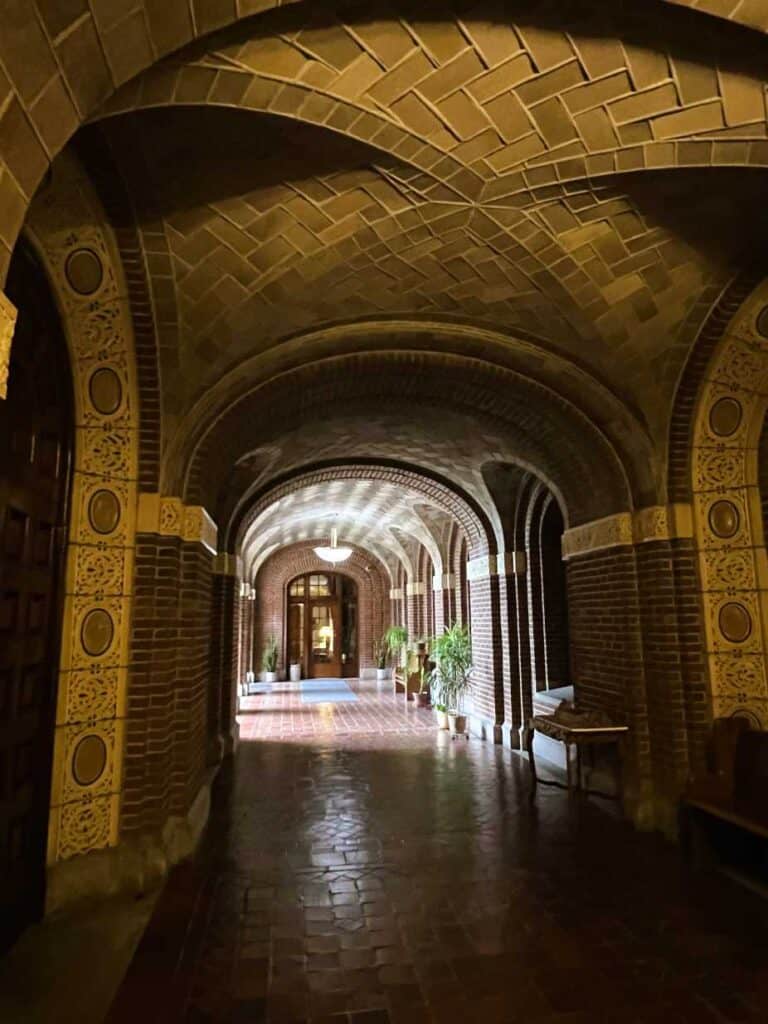
As I rode up the driveway, my jaw dropped. The castle-like building wasn’t something I was expecting in rural Indiana. It was reminiscent of Europe from centuries ago. While the dome is a prevalent part of the building’s exterior, the inside of the dome makes the church light, airy, and uplifting—a characteristic of Gothic architecture.
Even if you can’t visit Dubois County to explore the Monastery’s Gift Shop, you can support their efforts by purchasing their bakery and snack items online. Another fun local attraction is the brewery built on the property. Stop by for a pizza and beer if you’re there around mealtime.
Piper’s Pro Planning: The Monastery offers guided tours Tuesday through Friday at 10:00 a.m., 11:00 a.m., 1:00 p.m., and 2:00 p.m. and Saturdays and Sundays at 1:00 p.m. and 2:00 p.m. Schedule a group tour by contacting Sister Jane Ann Breen at 812-367-1411 or [email protected].
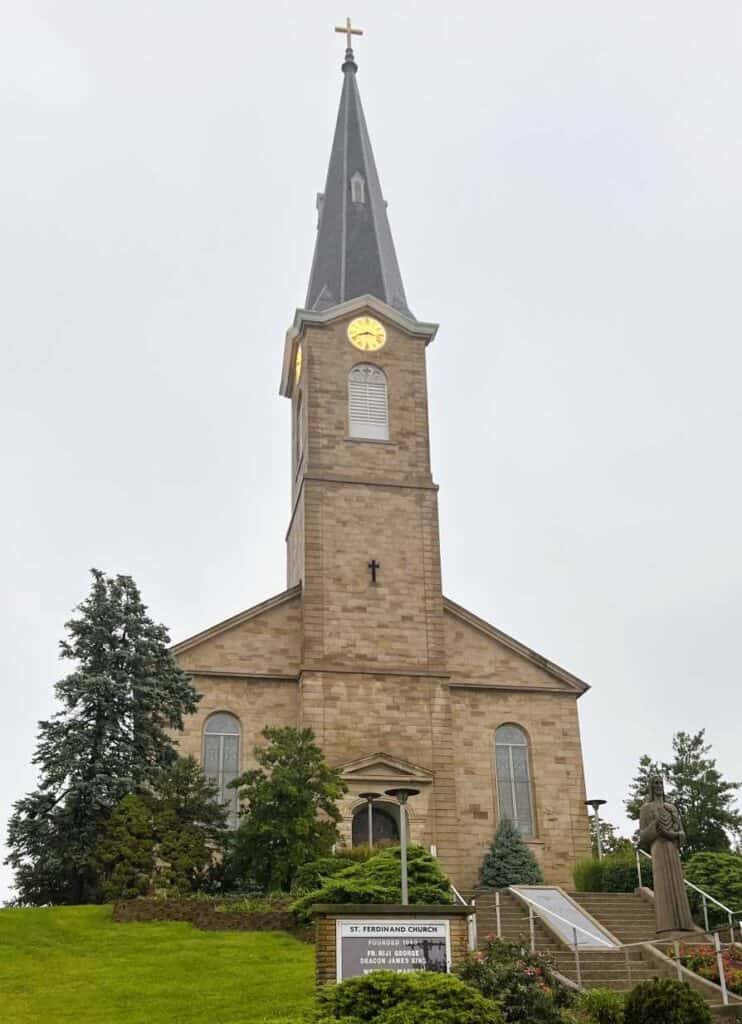
St. Ferdinand Church
Part of the beauty of St. Ferdinand Church is its elevation. It sits high on a hill overlooking the town, featuring an imposing steeple with a clock. The congregation started when Father Joseph Kundek placed an ad in a German Catholic Weekly called Der Wahrheitsfreund. The ad invited German Catholics from Ohio, Kentucky, and Pennsylvania to settle in the new town of Ferdinand. In 1840, those who came built Ferdinand’s first log church. As the number of parishioners increased, they decided to make the stone church that is standing today. They laid the cornerstone of the building in 1845.
While you’re exploring Dubois County, Indiana, you’ll need sustenance. Here are 9 Places to Eat in Jasper, Indiana, while exploring the Trail of Faith.
Architectural Diversity on the Trail of Faith in Dubois County, Indiana
What sets the Trail of Faith apart from other religious heritage tours? It’s the diversity of architectural styles in a relatively small area. Within a day’s drive, you can experience everything from simple country churches to grand, European-inspired structures.
While I only toured the inside of St. Joseph’s Catholic Church and the Monastery of the Immaculate Conception Church, it seemed like a graduate-level intensive course in church architecture. I could see the changes in building traditions over the years.
The architectural diversity of the Trail of Faith appealed to me as a photographer, too. Instagram has helped spread awareness of the trail, with people sharing stunning images of ornate stained-glass windows, soaring spires, and picturesque rural settings. I couldn’t wait to share mine.
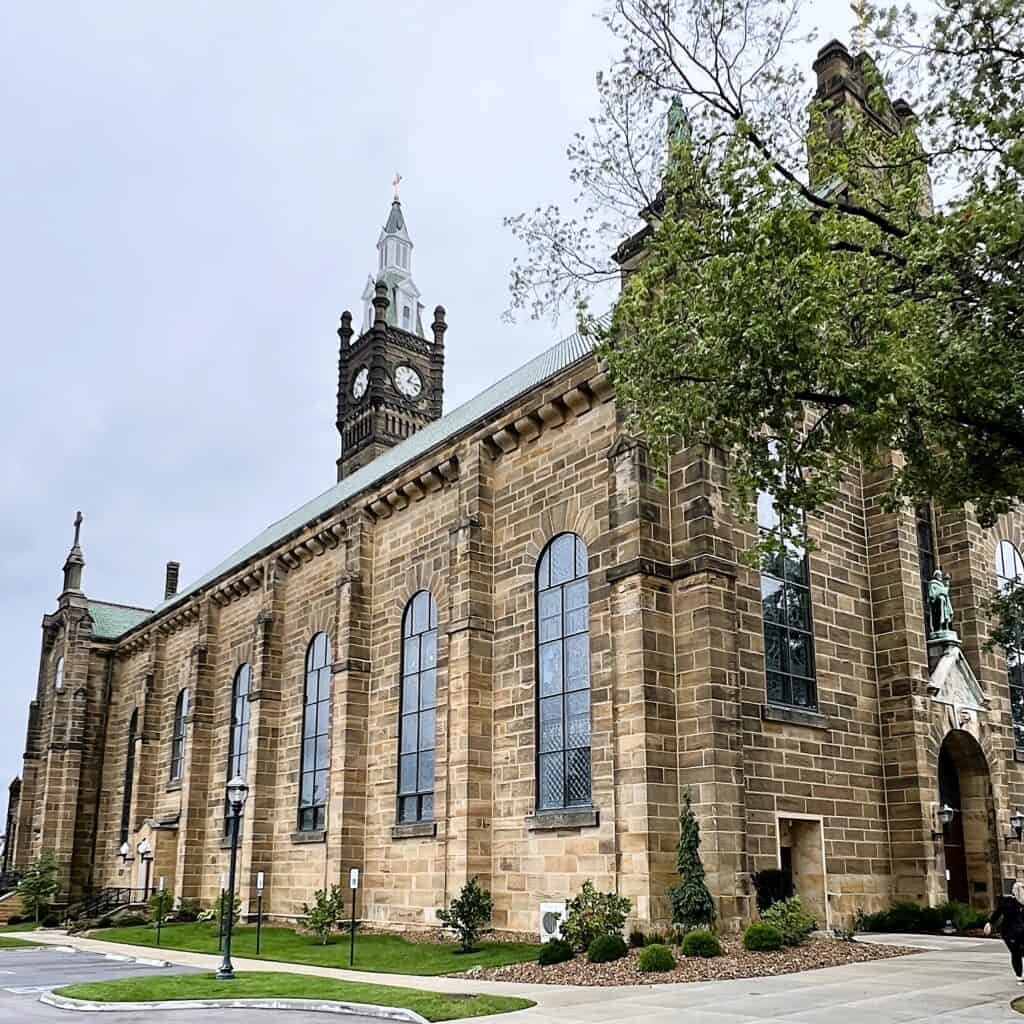
Beyond Architecture: A Cultural Experience
While the architectural appeal of the Trail of Faith is undeniable, I found the experience went beyond admiring a beautiful building. The trail offers a window into the cultural heritage of Dubois County and the surrounding region.
Many churches on the trail still have active congregations, and visitors are often welcome to tour them and attend services and special events.
Educational Opportunities
The Trail of Faith has evolved into a significant educational resource for schools and universities in the region. Architecture and history students frequently visit the trail to examine various building styles and techniques firsthand.
I remember reading about various elements of church architecture in my art history class and French language textbook. Still, nothing compares to standing in a church and seeing the light pass through the stained-glass windows.
Several churches along the trail have created educational programs that provide guided tours that explore the buildings’ history, the communities that constructed them, and their distinctive architectural features.
Looking to the Future
As the Trail of Faith enters its third decade, organizers seek ways to expand its appeal and ensure its long-term sustainability. In 2025, they plan to attend a Going on Faith motorcoach conference to meet faith-based motorcoach companies to promote the Trail of Faith as a destination worth visiting.
As churches in the county reach 100 years old, there is increasing interest in expanding the trail to encompass more historic religious structures. The Trail of Faith’s mission focuses on preserving these historic buildings and their stories. No financial funding has been established to help maintain the buildings on the trail. The Trail of Faith builds awareness of these historic churches but isn’t necessarily a funding source.
Faith and Craftsmanship
As the sun sets over Dubois County, casting long shadows across the weathered stone of St. Joseph’s Church, it’s easy to understand why the Trail of Faith has captured the attention of so many. These houses of worship stand as a testament to the faith of those who built them and the skill and artistry of generations of artisans who poured their hearts into every carved detail and soaring arch.
For architecture enthusiasts, history buffs, or anyone seeking a deeper connection to America’s past, the Trail of Faith offers a unique and enriching experience. It’s a journey through time, faith, and human creativity – all set against the backdrop of Indiana’s beautiful countryside.
More Fun for History Buffs
If you’re interested in history, you may want to stop by the Dubois County Museum. The museum has over 50,000 artifacts, and its agriculture display is the largest in Indiana.
Piper’s Pro Planning: The museum opens Tuesday through Sunday. Hours are Tuesday through Friday, 10 a.m. to 2 p.m., Saturday, 10 a.m. to 4 p.m., and Sunday, 1 p.m. to 4 p.m.
If you’d like to learn more about church architecture, this article on Barcelona architecture and Gaudí is a good starting point.
Pin this to your favorite Pinterest Travel Board!
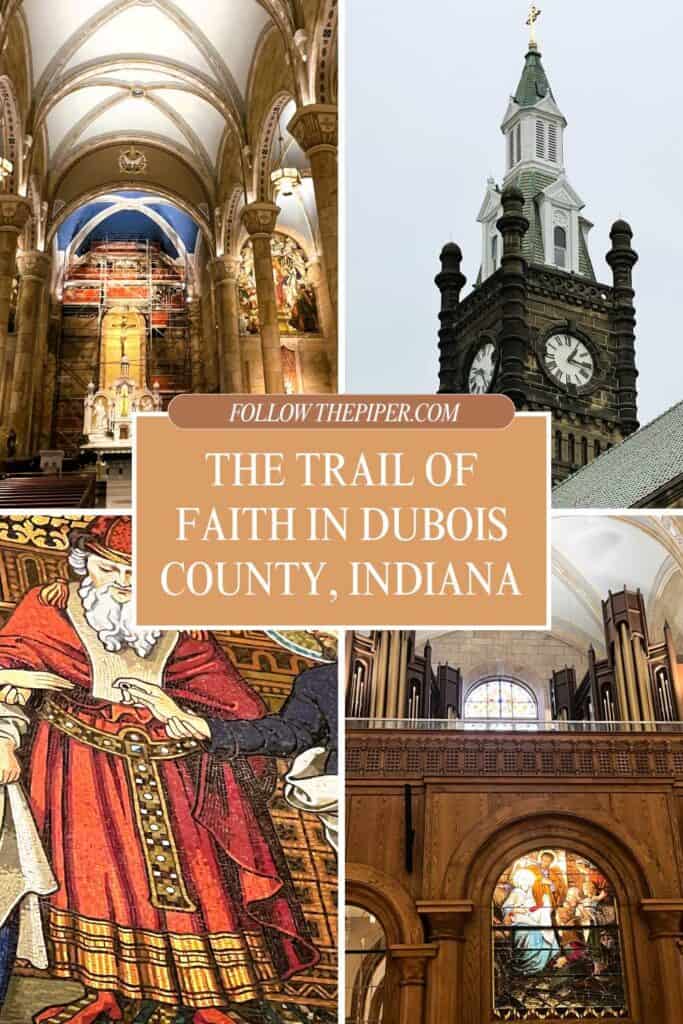
While Piper is a lifelong Michigander, she’s had adventures worldwide. Bomb-sniffing dogs chased her in the middle of the night in Bogota (working late), gate agents refused her boarding to Paraguay (wrong visa), and US Marshals announced her seat number on a plane while looking for a murder suspect (she’d traded seats). It’s always an adventure! She even finds exciting activities in her home state of Michigan, where she lives in Lansing with her husband, Ross Dingman, her daughter, Alexis, and two granddaughters.

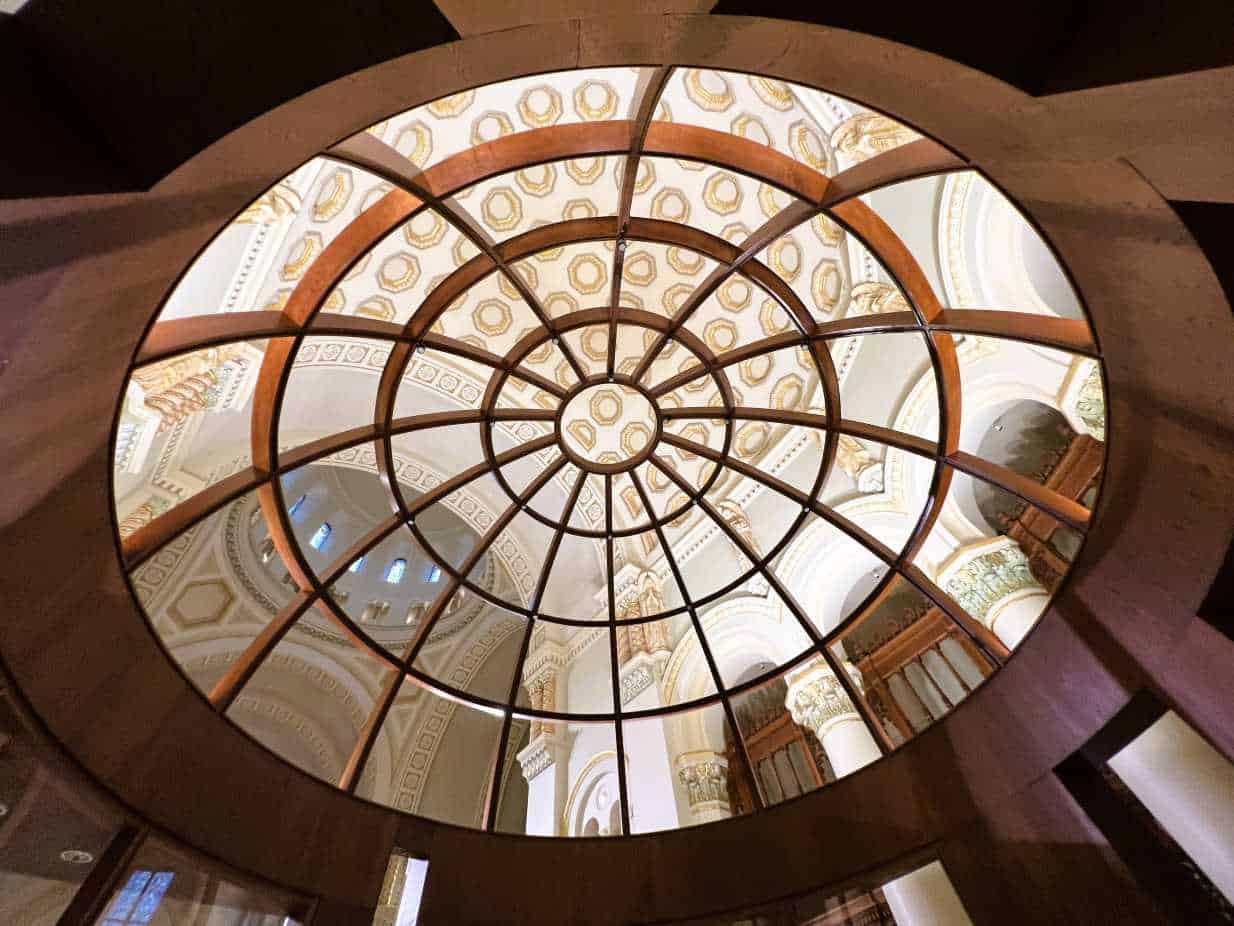
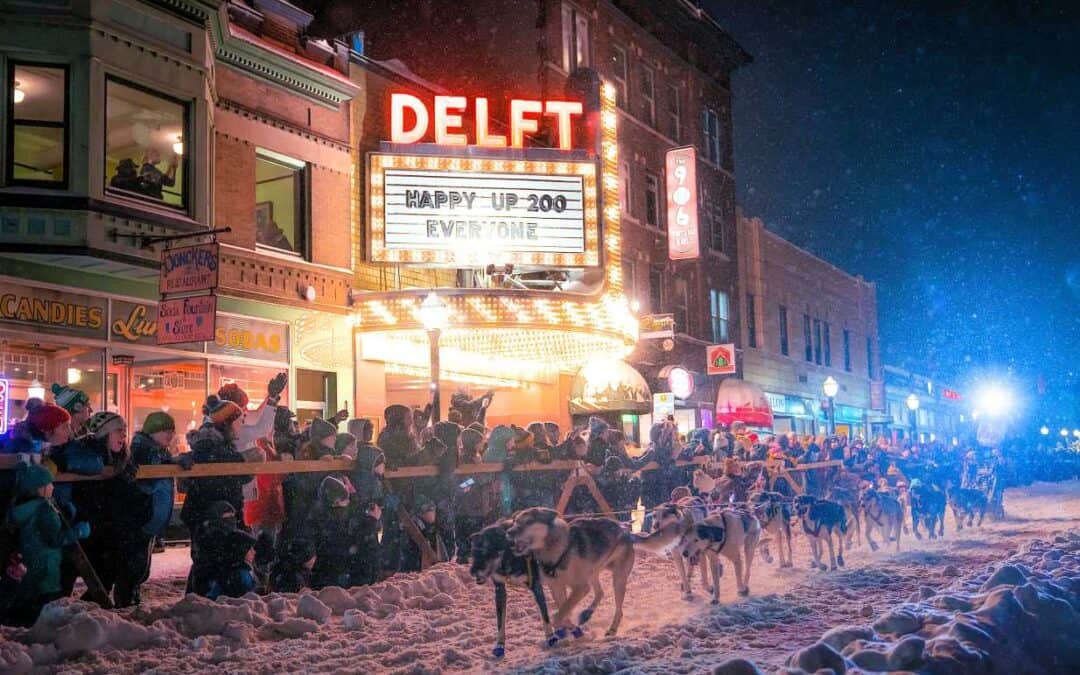
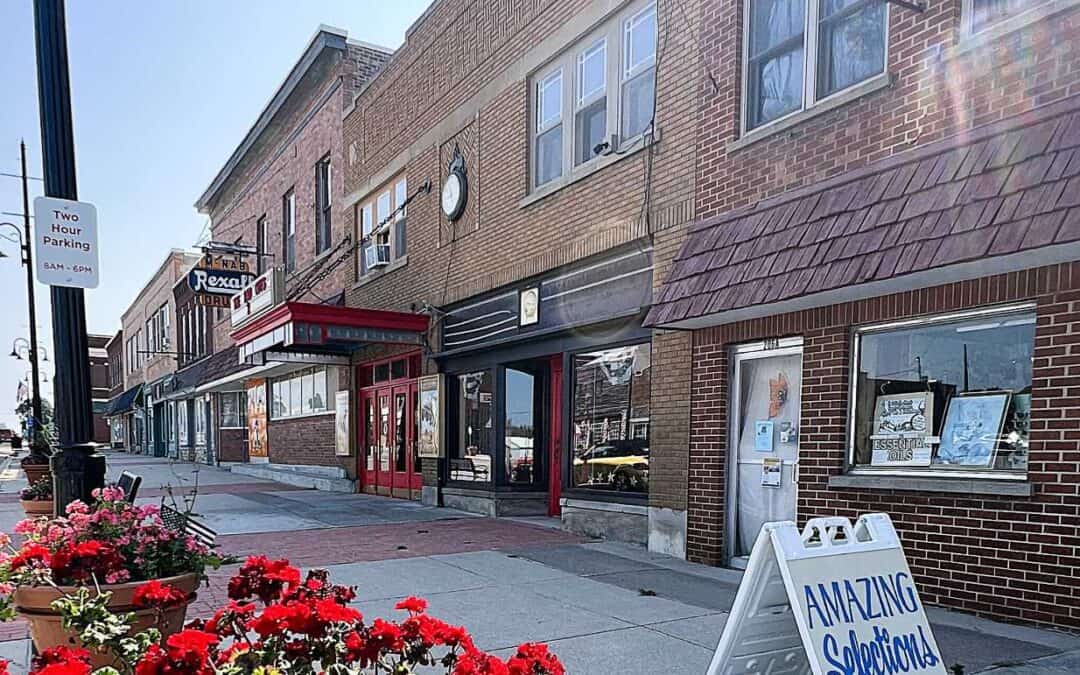

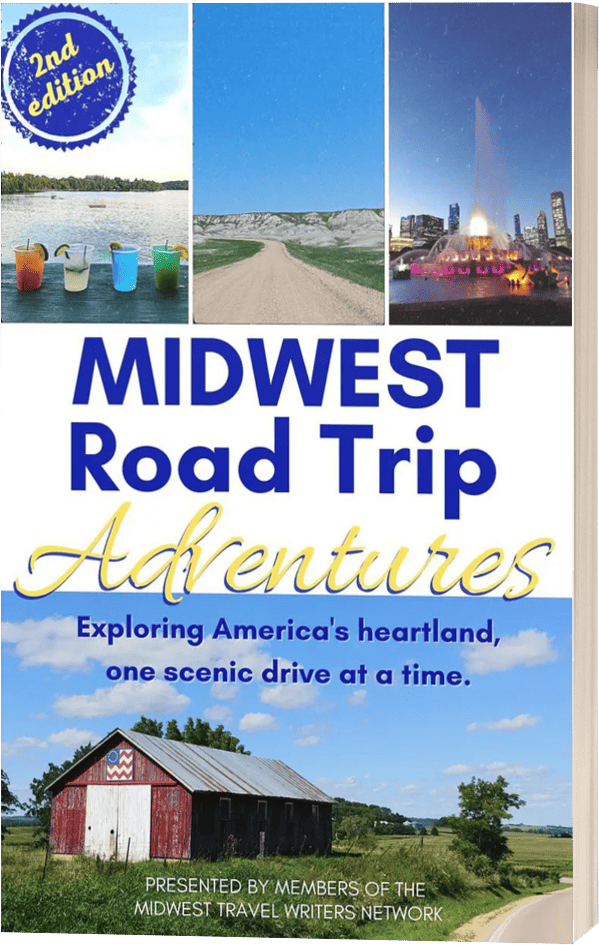
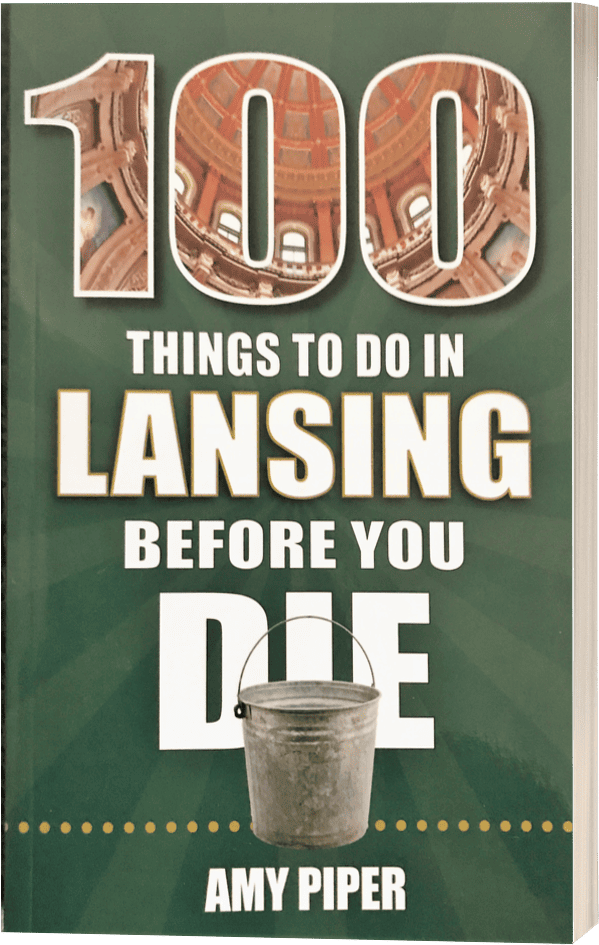
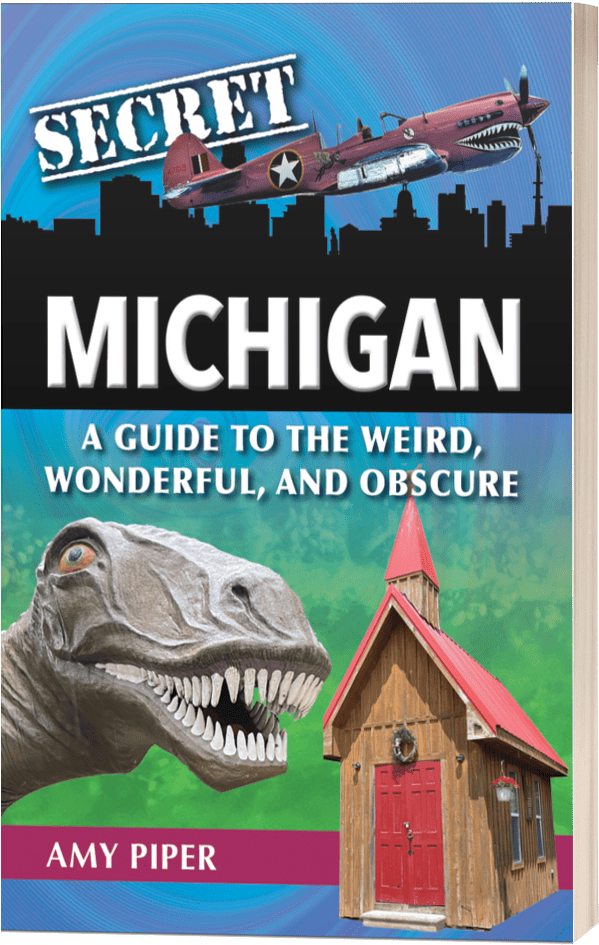
I grew up in Indiana, but I didn’t know about the Trail of Faith-something to look forward to on my next visit!
I just learned that my grandmother was born in Indiana, so this would be a very meaningful trip for me